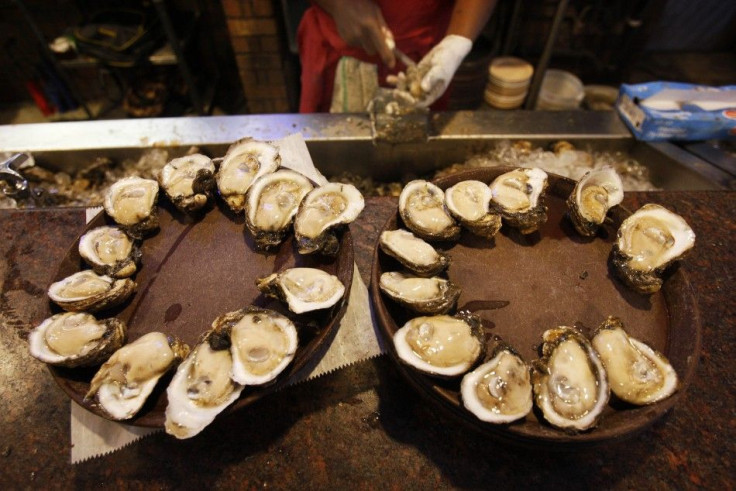Korean Molluscan Shellfish Should Be Pulled From Market: FDA

U.S. food wholesalers, food retailers, and food-service operators have been advised by the Food and Drug Administration to remove from their distribution chains all clams, mussels, and oysters, as well as some scallops -- collectively known as molluscan shellfish -- that have come to the U.S. from South Korea.
This advisory encompasses molluscan shellfish -- whether fresh, frozen, or processed -- that came to the U.S. from South Korea before May 1, when the FDA removed such products from the Interstate Certified Shellfish Shippers List, or ICSSL, and that which may have inadvertently entered the country after that date.
These products and any products made with them may have been exposed to human fecal waste, and they are potentially contaminated with norovirus, according to the FDA.
Molluscan shellfish contaminated with fecal waste or norovirus are considered adulterated under the Federal Food, Drug, and Cosmetic Act. Some food companies began to pull these products from their distribution chains after being notified about them last month, but others have yet to take action, the FDA reported.
A comprehensive FDA evaluation determined that the Korean Shellfish Sanitation Program, or KSSP, no longer meets the sanitation controls specified under the U.S. National Shellfish Sanitation Program. This evaluation found significant deficiencies in the KSSP, including inadequate sanitary controls, ineffective management of land-based pollution sources, and inefficacious detection of norovirus in shellfish-growing areas, the FDA said.
The deficiencies in the KSSP led the FDA to remove all South Korean certified shippers of molluscan shellfish from the ICSSL on May 1. South Korean and U.S. authorities are conducting discussions to solve this problem.
Norovirus is the most common cause of acute gastroenteritis in the U.S., according to the Centers for Disease Control and Prevention. Annually, it causes about 21 million illnesses and contributes to about 70,000 hospitalizations and 800 deaths, the CDC reported. Norovirus is also the most common cause of foodborne-disease outbreaks in the U.S., the CDC said.
The most common symptoms of norovirus-related illness are abdominal cramps, diarrhea, nausea, and vomiting. Among other symptoms are fevers, headaches, and muscle aches. Most people develop symptoms 12 to 48 hours after exposure to the virus. The illness typically lasts one to three days. Dehydration is the most common complication -- especially in young children and old adults -- and it may require medical care.
There have been no reported U.S. norovirus-related illnesses associated with the consumption of South Korean molluscan shellfish this year, but there were such illnesses associated with the consumption of South Korean oysters last year, according to the FDA.
Consumers who have recently bought molluscan shellfish and are concerned it may have come from South Korea should contact the store where it was purchased and ask about its country of origin. Consumers can check the label on packaged seafood to see whether it is from South Korea: If it is unclear where the product originated, consumers can call the manufacturer to find out. Consumers should dispose of molluscan-shellfish products from South Korea -- and any products made with them -- the FDA said.
© Copyright IBTimes 2025. All rights reserved.






















